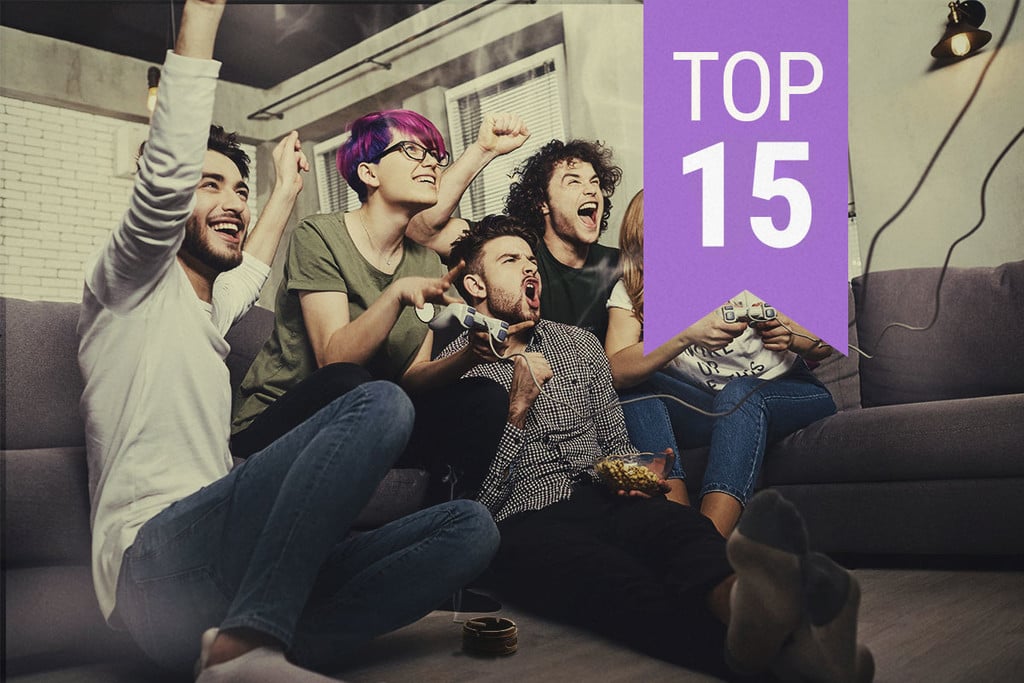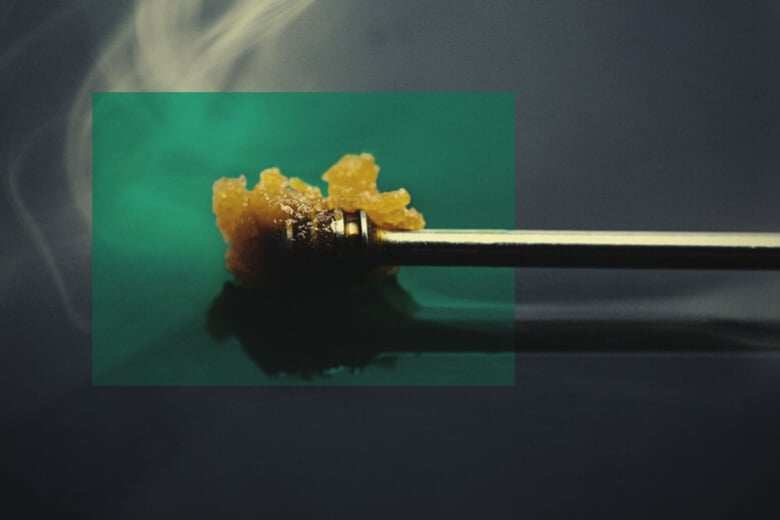.
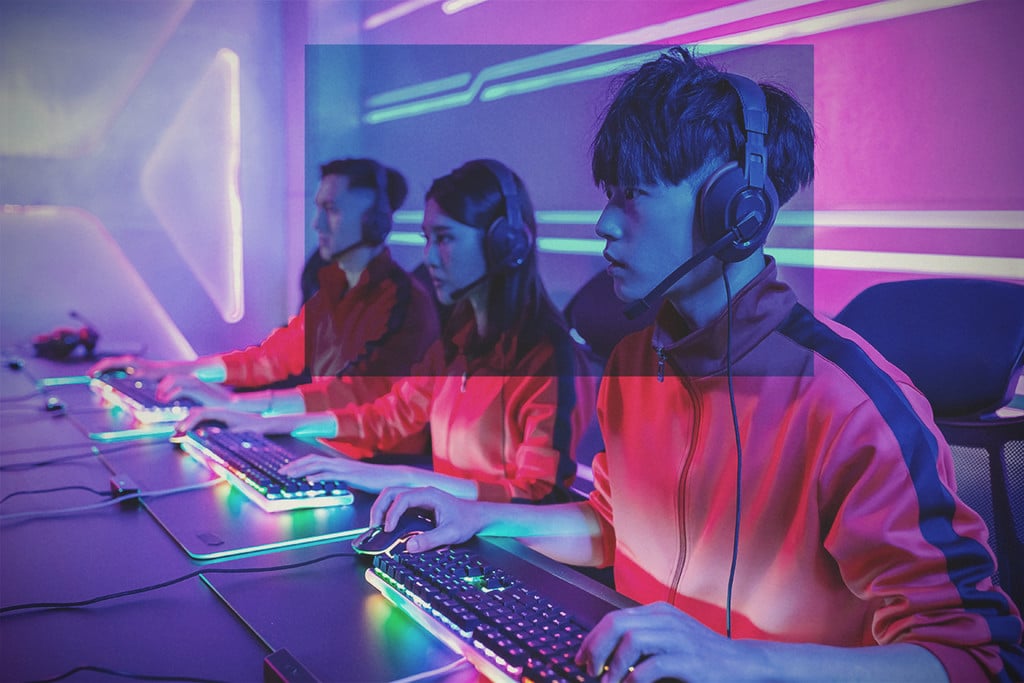
CBD and eSports: Could It Help?
Have you ever taken CBD before playing video games? You probably found it helped you to relax and zone in. But how does the cannabinoid perform in the high-stakes world of eSports gaming? Pro players battle it out to win huge cash prizes, and many are willing to try anything to give them a boost. So, what's the consensus on CBD?
Contents:
Athletes from a host of sports are turning to CBD to improve their performance and aid their recovery. While not highly physical in nature, eSports require refined cognitive skills, and can inflict bodily injuries through chronic conditions. Does CBD have a place in the world of elite eSports? Find out how the cannabinoid might lend an advantage below.
What Are eSports?
eSports (short for electronic sports) are video game tournaments taken to new competitive heights. Both amateur and professional video gamer players have battled it out online for decades, but eSports places these cyber scuffles in a sporting context—stadiums and all. These events range from small local gatherings where the victors bag modest prizes and clout to the international stage where the prize pools enter the 7-figure mark. Take Valve’s annual Dota 2 world championship, for example, where the prize pool reached $40 million for a single tournament series thanks to crowdfunding efforts.
Individuals have managed to carve out careers for themselves by recording and streaming their gaming endeavours online, but eSports takes the pressure, reward, and respect to a whole new level. While winning these tournaments pays handsomely, many professional gamers are equally enticed by achieving world-renowned titles, much like athletes in physical sports.
As the awareness of eSports continues to swell, viewership and investment are also skyrocketing. Now, more platforms are providing live coverage of such events. So, what types of games do eSports stars battle in? Below are some of the most common:
- Player vs player (PVP)
- First-person shooter (FPS)
- Real-time strategy (RTS)
- Multiplayer online battle arena (MOBA)
Among these game types, some of the biggest eSports games include:
- Dota 2
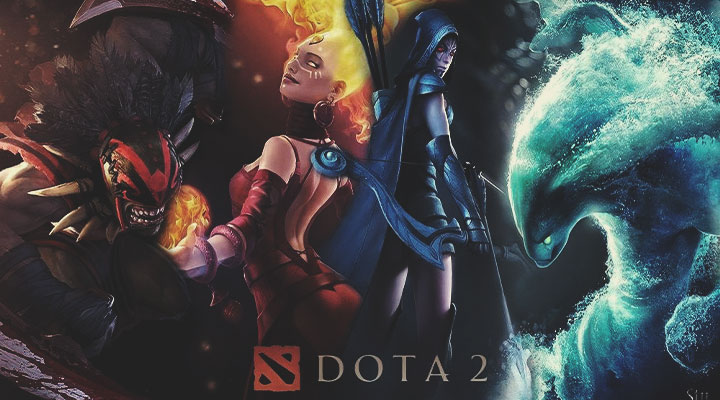
- Counter-Strike: Global Offensive
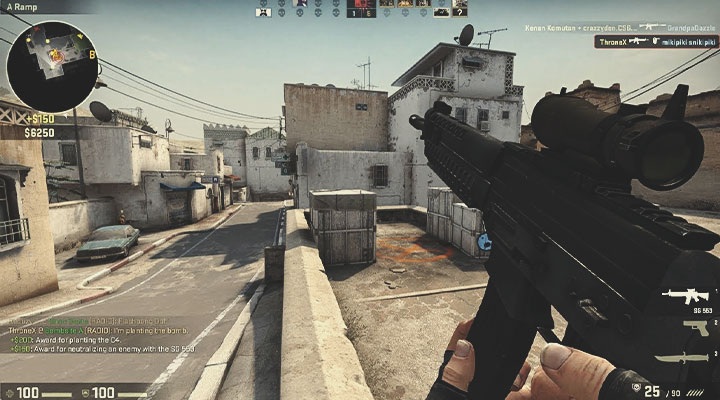
- Fortnite

- League of Legends
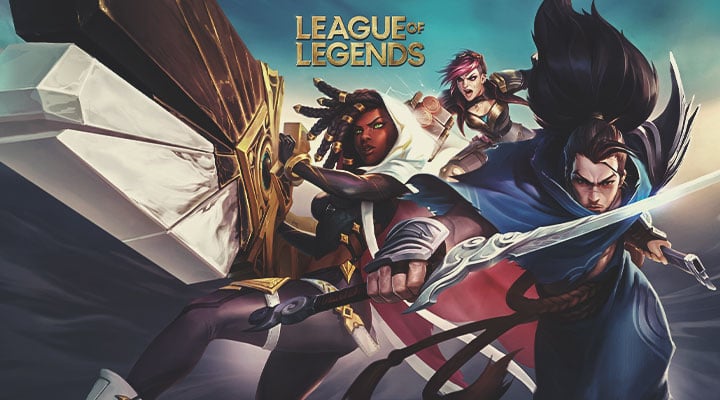
- Arena of Valor
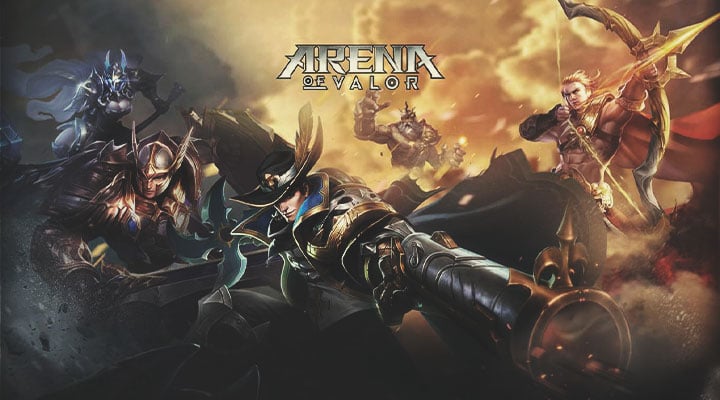
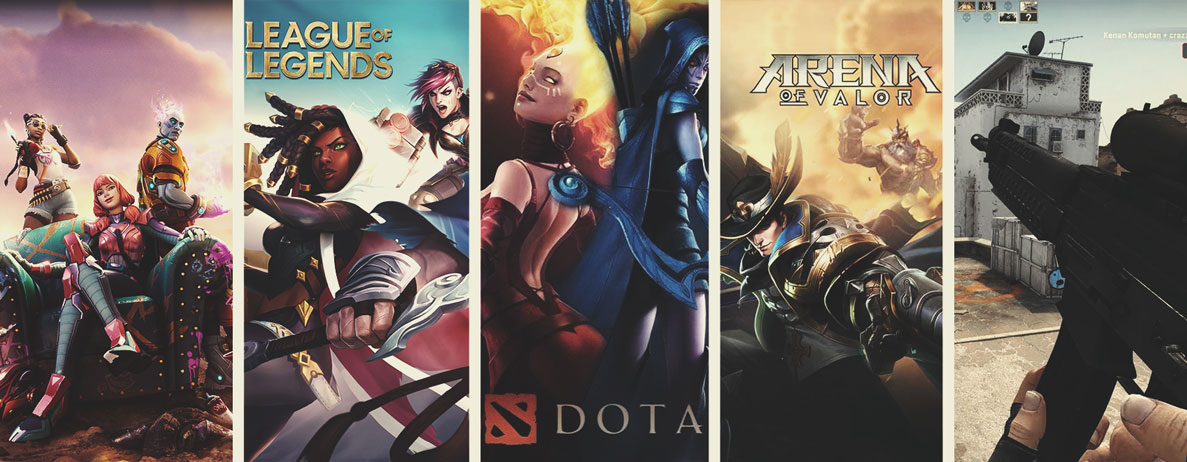
What Are the Risks of eSports?
All physical sports come with an element of risk, especially at the elite level. Football, rugby, and basketball players are at constant risk of both contact and non-contact injuries, including concussions, ligament sprains, muscle strains, and bone fractures. While eSports are much more cognitive than physical, they still expose players to risks and injuries, to the degree that some physiotherapists are now branching out into the speciality of eSports medicine. Some of the most common risks among eSports players include:
- Carpal tunnel syndrome: This condition results from the compression of the nerves that innervate muscles in the hand and forearm. Professional eSports players clock in with an average of 50 hours per week of gameplay—this amount of mouse and keyboard action can put a strain on these anatomical structures. The symptoms include pain, numbness, and tingling.
- Low back pain (lumbago): Notoriously hard to treat, low back pain presents a musculoskeletal epidemic past eSports; many workers that spend hours sitting in desk chairs experience anything from minimal discomfort to severe pain from this condition.
- Tech neck: Prolonged computer use can also result in “tech neck”. Patients with the condition complain of headaches, muscular stiffness, spasms, and pain.
- Stress and anxiety: All athletes at the professional level experience psychological issues to some degree; many sports teams employ sports psychologists to help athletes deal with stress and anxiety caused by social pressure and high stakes.
CBD and Gaming: Does the Cannabinoid Have a Place?
Most professional athletes, weekend warriors, and occasional gym-goers devise supplement regimens to give themselves an edge when it comes to performance and recovery. Alongside the classics—such as creatine, protein shakes, and multivitamins—athletes from all sporting fields are starting to leverage CBD for these purposes. Walk into any supplement store and you’ll see bottles of CBD oils, capsules, and creams lining the shelves. But does the cannabinoid have a place in eSports?
It certainly looks like it. CBD brands are forming partnerships with big eSports names, including the British eSports organisation London eSports. Industry fusion aside, individual eSports professionals are harnessing the cannabinoid as somewhat of an ergogenic—performance-enhancing—aid in hopes of gaining a competitive advantage. Beyond cognitive performance, some eSports players also use CBD in an attempt to negate the physical toll of excess computer use. But how well does the cannabinoid work for both of these uses?
Focus
eSports professionals and amateur players need to maintain focus above all else. Many games require quick reaction times, on-the-fly strategy, and constant contingency planning. Though the average League of Legends bout lasts around 30 minutes, for example, players need to maintain high levels of focus during hours of training every single day. Does dosing CBD before or during matches offer players any advantage?
First of all, high-CBD cannabis flowers and extracts offer a different effect than those containing large quantities of THC. While some gamers claim to play better when high, others find that the altered state of consciousness negatively impacts their performance. However, CBD doesn’t produce a high. Instead, it promotes a clear-headed effect that enables players to remain fully functional and lucid during high-stakes matches.
But CBD might offer something beyond enhancing normal cognitive functioning. Ongoing studies are exploring how the cannabinoid influences the brain and emotions. Naturally, players experience varying degrees of anxiety before big events, and science has shown that anxiety impacts cognitive function. The adverse mental state makes it hard to focus and affects decision-making. Studies are currently examining CBD in models of anxiety in both animals and humans to determine if the cannabinoid can reduce nervousness[1] in high-pressure situations, and if it influences cerebral blood[2] flow in a way that could help to reduce anxiety.
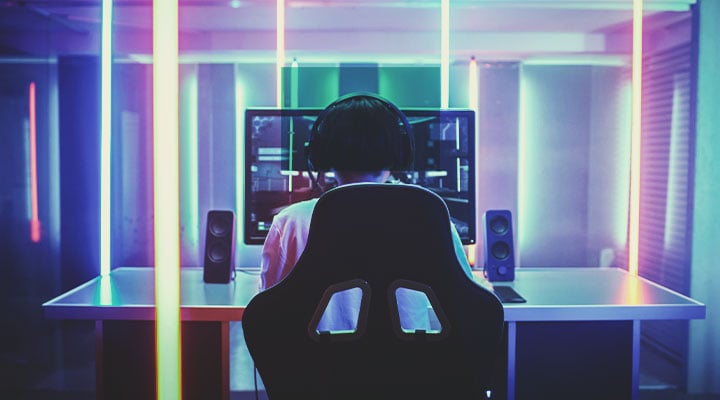
Memory
Memory plays an important role in video game performance on both the conscious and unconscious levels. Muscle memory helps players effortlessly pull off complex moves without thinking about it. Gamers also rely on excellent short-term and long-term memory when it comes to mastering a digital environment. Remembering key locations on a familiar map offers a significant advantage, and the ability to learn the layout of a new map quickly helps them pinpoint key strategic locations. Does CBD help in this area?
We all know that THC negatively impacts short-term memory, but how does CBD compare? Unfortunately, not enough research exists to give a solid answer. However, many ongoing studies are looking to find the answer. Researchers from Switzerland are investigating how the cannabinoid affects verbal episodic memory[3] in healthy human subjects, while other scientists are exploring how CBD impacts the hippocampus[4]—a brain region associated with memory.
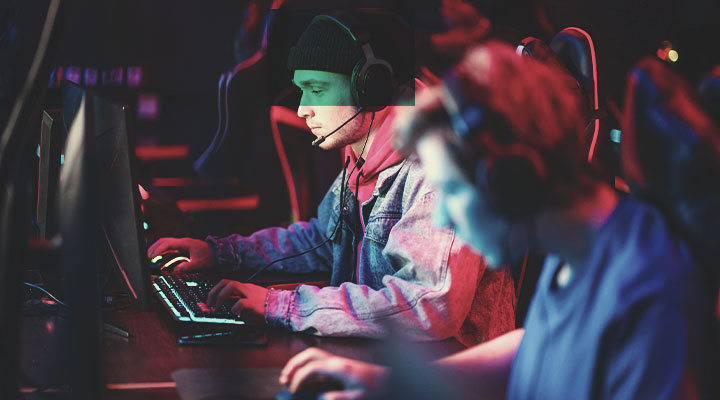
Physical Injury
Athletes across the board are turning to CBD in an attempt to address injuries and boost recovery time. Whereas many sporting injuries are acute and traumatic, those that occur among eSports players tend to be more chronic in nature. Can CBD do anything to address these aches and pains?
The field of pain science has many different camps, and clinicians take vastly different approaches to pain—from hands-on manual therapy to strictly exercise-only regimens. While cannabis and its constituents have yet to be approved as therapeutics for pain and inflammation, researchers are pitching various cannabinoids against models of these conditions.
The evidence surrounding CBD for pain and recovery remains inconclusive. Researchers in the United States are testing topical CBD oil in cases of peripheral neuropathy[5]. Of course, scientists are also making an effort to study the effects of CBD in cases of low back pain[6]. Findings in these areas could one day justify the use of CBD for common gaming complaints, including carpal tunnel syndrome, back pain, and neck pain.
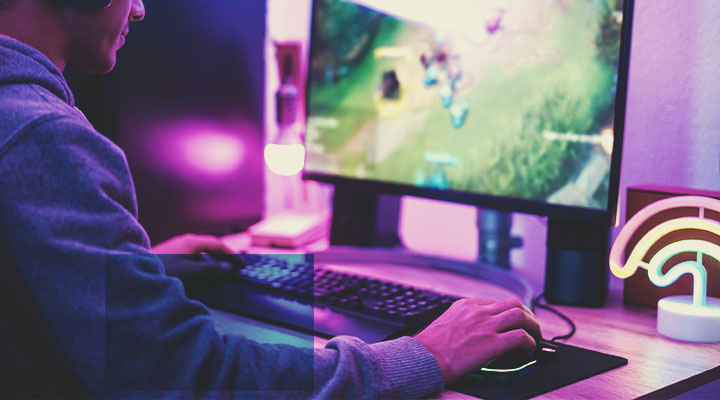
Sleep
Many gamers find themselves bashing buttons deep into the night. While casual players can get away with this, professional eSports players need all the sleep they can get. Lack of sleep has profound consequences on alertness and concentration; poor sleep before an important event can have disastrous consequences. But falling asleep isn’t always easy. Can CBD lend a helping hand?
Right now, we can’t say for sure. But we understand you’re not satisfied with that answer. We know that CBD helps many users to kick back and relax; some even experience drowsiness as a side effect. We’ll hopefully have better answers soon, especially as researchers continue to explore how CBD affects the sleep cycle[7].


Can THC Help With Gaming Performance?
What about THC? Many gamers swear by a hefty joint before putting on their headset, but it doesn’t work well for everyone. Some users find that THC boosts their focus and allows them to enter a flow state free of distractions. In contrast, others lose their flow after smoking a bowl or blunt and find themselves being pulled away from the task at hand by overwhelming feelings. THC certainly makes games more enjoyable, but it doesn’t necessarily give pro gamers a competitive advantage.
How to Use CBD for eSports
So, do you want to give CBD a try before picking up your controller or wrapping your hand around your mouse? Well, you have plenty of options available. Check out the most popular below.
CBD Oil
There are many CBD oils on the market, each differing in CBD concentration, carrier oil, additional ingredients, and overall quality. CBD oil serves as one of the most flexible ways to take the cannabinoid. You can swallow it for a longer onset and a longer duration of effects, or you can place a few drops under the tongue for faster-acting effects that also dissipate sooner.
CBD Capsules
Capsules are spill-proof and efficient. Simply knock a capsule back with some water (or something containing caffeine) and carry on playing as normal. As an oral option, capsules take longer to set in, anywhere from 30–60 minutes. However, the effects linger for longer.
Topical CBD Products
Topical CBD products, such as creams, don’t enter systemic circulation. You won’t feel any cognitive effects, but many people enjoy the soothing effect after applying it to affected areas.
Is CBD Legal in eSports?
Casual home gamers can happily take whatever cannabinoid they want. Moreover, minor events rarely test players for substances. However, at the professional level, eSports pros are subject to a banned substance list. The eSports Integrity Commission includes seven substances on this list, including Adderall and Evekeo (amphetamine sulphate). Both cannabis and CBD are not included. You can certainly use CBD during most eSports matches, though we suggest double-checking well in advance of a particular event to give your body enough time to clear any lingering metabolites.
- Cannabidiol Reduces the Anxiety Induced by Simulated Public Speaking in Treatment-Naïve Social Phobia Patients | Neuropsychopharmacology https://www.nature.com
- Neural basis of anxiolytic effects of cannabidiol (CBD) in generalized social anxiety disorder https://journals.sagepub.com
- Cannabidiol enhances verbal episodic memory in healthy young participants https://www.sciencedirect.com
- Cannabidiol improves blood flow to brain’s hippocampus | UCL News - UCL – University College London https://www.ucl.ac.uk
- The Effectiveness of Topical Cannabidiol Oil in Symptomatic Relief of Peripheral Neuropathy of the Lower Extremities - PubMed https://pubmed.ncbi.nlm.nih.gov
- Cannabidiol (CBD) as a treatment of acute and chronic back pain: A case series and literature review - PubMed https://pubmed.ncbi.nlm.nih.gov
- Cannabidiol can improve complex sleep-related behaviours associated with rapid eye movement sleep behaviour disorder in Parkinson's disease patients: a case series - PubMed https://pubmed.ncbi.nlm.nih.gov


























